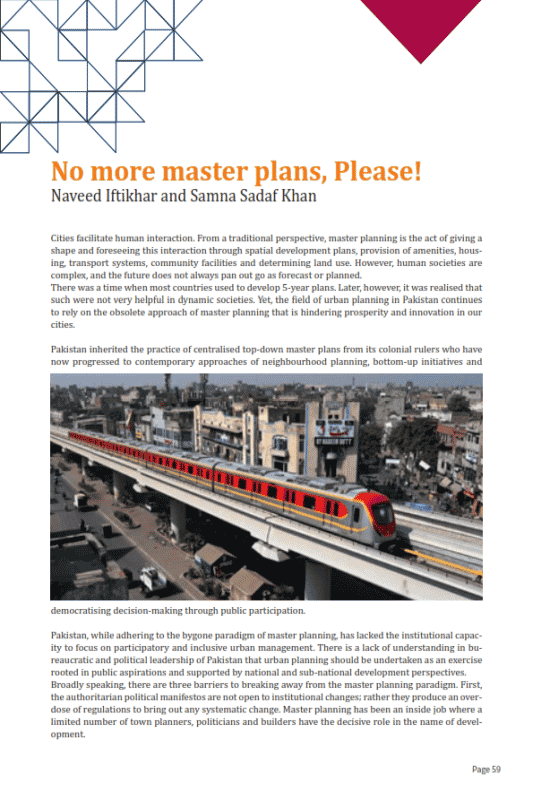No more master plans, Please!
Publication Year : 2021
Cities facilitate human interaction. From a traditional perspective, master planning is the act of giving a shape and foreseeing this interaction through spatial development plans, provision of amenities, housing, transport systems, community facilities and determining land use. However, human societies are complex, and the future does not always pan out go as forecast or planned. There was a time when most countries used to develop 5-year plans. Later, however, it was realised that such were not very helpful in dynamic societies. Yet, the field of urban planning in Pakistan continues to rely on the obsolete approach of master planning that is hindering prosperity and innovation in our cities.
© 2024 Pakistan Institute of Development Economics




